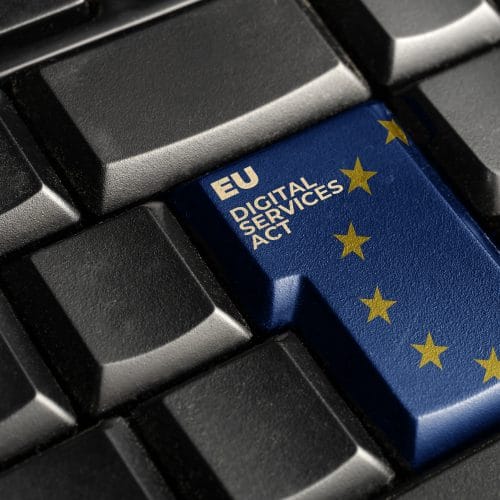10 February 2023
Political Advertising in the Age of TechnoPolitics: Transparent or disconnected?
Political Advertising in the Age of TechnoPolitics: Is the new regulation on political advertising transparent or disconnected?

Political Advertising in the Age of TechnoPolitics: Is the new regulation on political advertising transparent or disconnected?

Information today – all kinds of data and knowledge, ideas, facts, news, opinions, as well as political images, messages, and symbols – are all exchanged at the intersection of technology and politics.
Political ads online: what is the price of transparency?
In this regard, technology can shape democratic processes and political outcomes. The rise of techno-politics means that as people get informed and make decisions via computer networks, social media platforms and big tech companies play a significant role in political campaigning and elections. For this reason, the EU is preparing new rules on online political advertising. The aim of the proposed regulation is increased transparency and reduced personal targeting, but this might inevitably come with costly trade-offs.
Regulation, if done right, is not a problem. Regulation can provide much-needed harmonization and legal certainty and facilitate business in the EU’s single market. However, it is all too easy to complicate things instead. A balanced approach is necessary, especially when regulating online aspects of our modern lives that may affect democratic processes and political participation. And this is, of course, the challenge faced by EU lawmakers when it comes to the “Transparency and targeting of political advertising.”
As we look to the beginning of trialogue negotiations for the file, the task is to ‘balance’ on the one hand a scope that ensures transparency, and, on the other hand, to avoid an expansive scope that treats any kind of political content as an advertisement. The solution inevitably involves a trade-off. But this trade-off cannot compromise our fundamental freedom of speech or block access to information and silence civil discourse.
Stay up to date and sign up to ELF’s Liberal Newspage Newsletter!
“Political advertising,” as defined now in the regulation, is any content “which would be liable or designed to influence the outcome of an election, referendum, legislative or regulatory process”. Despite the fact that the regulation does not label user-generated organic content as “political advertising” per se, any political message, in any public discussion online, regardless of whether it is paid or not, might eventually fall within the scope of this vague definition,
But who is going to determine if the political message can influence voting behavior or election outcomes? An authority? (Or better: 27 different authorities?) The platforms and the service providers? The users? The current proposal could then lead to service providers deciding what exactly qualifies as “political advertising,” creating a situation where we rely on the users or the service providers to act as arbiters of free speech.
In other words, the current transparency rules may allow multiple actors to challenge virtually any online ad and could allow political opponents, or even foreign actors, to systematically flag selected political parties’ ads, forcing platforms to remove this content – a sort of an online SLAPP (Strategic Lawsuits Against Public Participation). Such provisions could pave the way for unintentional censorship of certain topics and voices.
For the above reasons, lawmakers need to strike a balance between increased transparency in political advertising, and the proper functioning of the internal market for political campaigning. And indeed, there is still a range of ways in which the text can be fine-tuned, starting from narrowing the definition of “political advertising” to messages delivered against payment, which is consistent to the definition given in the DSA. Such a move would improve legal certainty and consistency while contributing to increasing transparency.
Likewise, the new regulation needs to be consistent with the already existing range of legislative instruments that seek to combat the spread of disinformation and foreign manipulation of information. Finally, it seems like a smart move to give regulations like the DSA and the Code of Practice on Disinformation sufficient time to be implemented and assessed before rushing to introduce additional legislation that tackles many of the same issues.
The new regulation on political advertising should focus on the issues specific to this area of online content and address the particular issues associated with these areas. The regulation could go further on such topics, for instance by introducing a mechanism for tracking back the sponsors of political advertising or ensuring the quality of information delivered with a political purpose.
There is no question whether a need exists for regulating the transparency of online political ads during electoral campaigns. But at a time when political participation in Europe is declining and considering the EU’s “let’s connect the unconnected” approach, the introduction of any regulation that could hinder the dissemination of information and political messaging could further disconnect EU citizens from democratic processes and institutions.
The post was was originally published on Brussels Morning.
8 December 2022

Political campaigns have moved from the streets and squares to social media in just a few decades. It would not be illogical if political campaigns’ next move were into the metaverse.
27 January 2022

“Digitising Europe” is the new ELF Blogposts series that engage with policymakers, industry experts, and academics in order to contribute to a better understanding of how technological change is also driving social, political, and regulatory affairs.
26 November 2021

“Digitising Europe” is the new ELF Blogposts series that engage with policymakers, industry experts, and academics in order to contribute to a better understanding of how technological change is also driving social, political, and regulatory affairs.